Product Detail
Product NameFANCD2 Rabbit mAb
Clone No.SN73-08
Host SpeciesRecombinant Rabbit
Clonality Monoclonal
PurificationProA affinity purified
ApplicationsWB, ICC/IF, IHC, IP
Species ReactivityHu, Ms, Rt
Immunogen Descrecombinant protein
ConjugateUnconjugated
Other NamesDKFZp762A223 antibody FA 4 antibody FA D2 antibody FA4 antibody FAC D2 antibody FACD 2 antibody FACD antibody FACD2 antibody FACD2_HUMAN antibody FAD antibody FAD2 antibody FANC D2 antibody FANCD 2 antibody FANCD antibody FANCD2 antibody FANCONI ANEMIA COMPLEMENTATION GROUP D antibody Fanconi anemia complementation group D2 antibody Fanconi anemia group D2 protein antibody FANCONI PANCYTOPENIA TYPE 4 antibody FLJ23826 antibody OTTHUMP00000158853 antibody OTTHUMP00000207925 antibody Protein FACD2 antibody Type 4 Fanconi pancytopenia antibody
Accession NoSwiss-Prot#:Q9BXW9
Uniprot
Q9BXW9
Gene ID
2177;
Calculated MW166 kDa
Formulation1*TBS (pH7.4), 1%BSA, 40%Glycerol. Preservative: 0.05% Sodium Azide.
StorageStore at -20˚C
Application Details
WB: 1:500-1:1000
IHC: 1:50-1:200
ICC: 1:100-1:500
Immunohistochemical analysis of paraffin-embedded mouse testis tissue using anti-FANCD2 antibody. Counter stained with hematoxylin.
Immunohistochemical analysis of paraffin-embedded rat stomach tissue using anti-FANCD2 antibody. Counter stained with hematoxylin.
Immunohistochemical analysis of paraffin-embedded rat testis tissue using anti-FANCD2 antibody. Counter stained with hematoxylin.
Immunohistochemical analysis of paraffin-embedded mouse stomach tissue using anti-FANCD2 antibody. Counter stained with hematoxylin.
ICC staining FANCD2 in SW480 cells (green). The nuclear counter stain is DAPI (blue). Cells were fixed in paraformaldehyde, permeabilised with 0.25% Triton X100/PBS.
ICC staining FANCD2 in Hela cells (green). The nuclear counter stain is DAPI (blue). Cells were fixed in paraformaldehyde, permeabilised with 0.25% Triton X100/PBS.
ICC staining FANCD2 in MCF-7 cells (green). The nuclear counter stain is DAPI (blue). Cells were fixed in paraformaldehyde, permeabilised with 0.25% Triton X100/PBS.
Fanconi anemia (FA) is an autosomal recessive disorder character-ized by bone marrow failure, birth defects and chromosomal instability. At the cellular level, FA is characterized by spontaneous chromosomal breakage and a unique hypersensitivity to DNA cross-linking agents. At least 8 complementation groups (A-G) have been identified and 6 FA genes (for subtypes A, C, D2, E, F and G) have been cloned. The FA proteins lack sequence homologies or motifs that could point to a molecular function. Phosphorylation of FANC (Fanconi anemia complementation group) proteins are thought to be important for the function of the FA pathway. Several FA proteins, including FANCA, FANCC, FANCF, and FANCG, interact in a nuclear complex, and this complex is required for the activation (monoubiquitination) of the downstream FANCD2 protein. When monoubiquitinated, the FANCD2 protein co-localizes with the breast cancer susceptibility protein BRCA1 in DNA damage induced foci. In male meiosis, FANCD2 also co-localizes with BRCA1 at synaptonemal complexes. The human FANCD2 gene maps to chromosome 3p25.3, contains 44 exons and encodes a 1,451-amino acid nuclear protein that exists as 2 protein isoforms.
If you have published an article using product 49082, please notify us so that we can cite your literature.


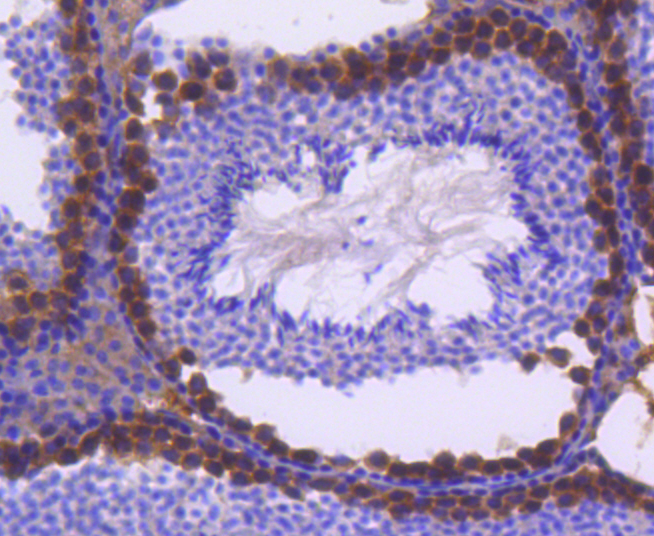
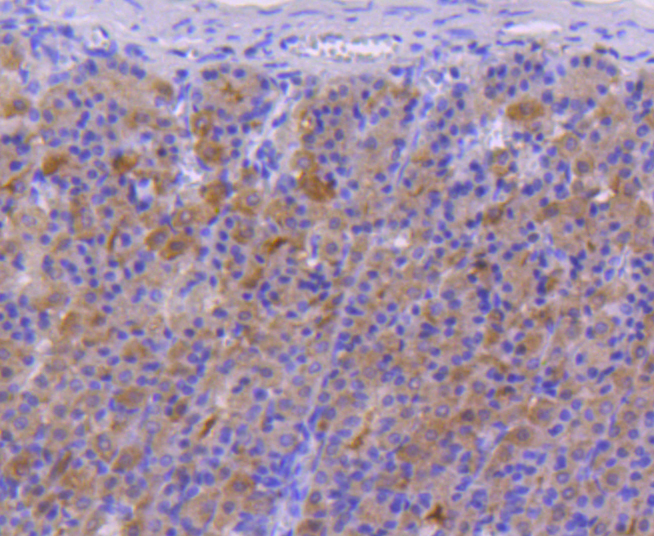
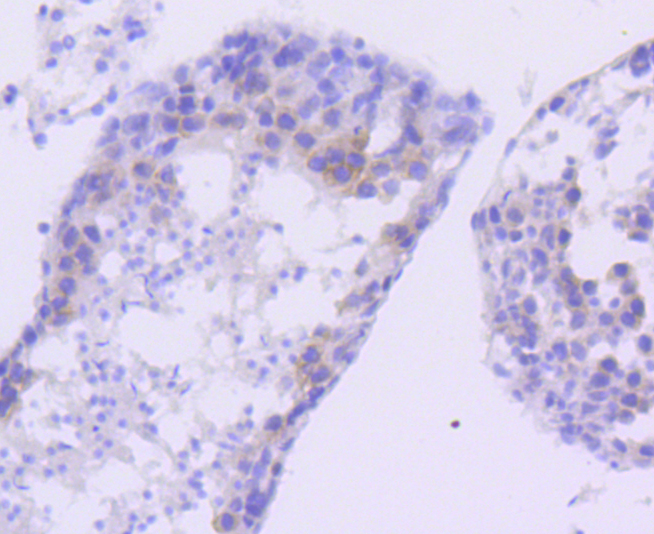
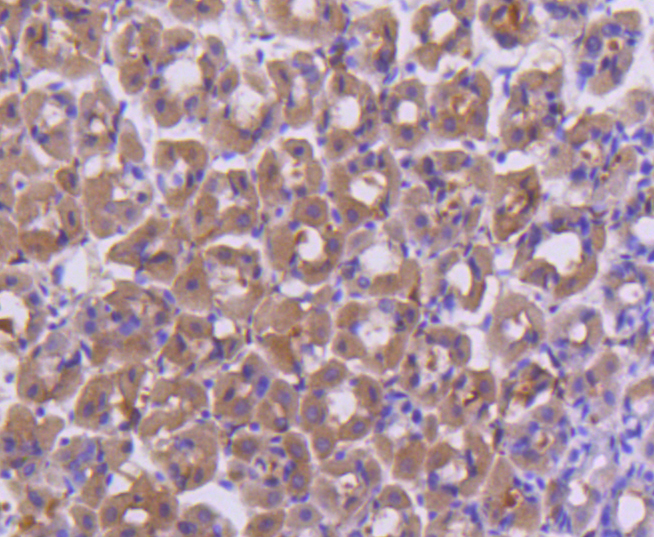
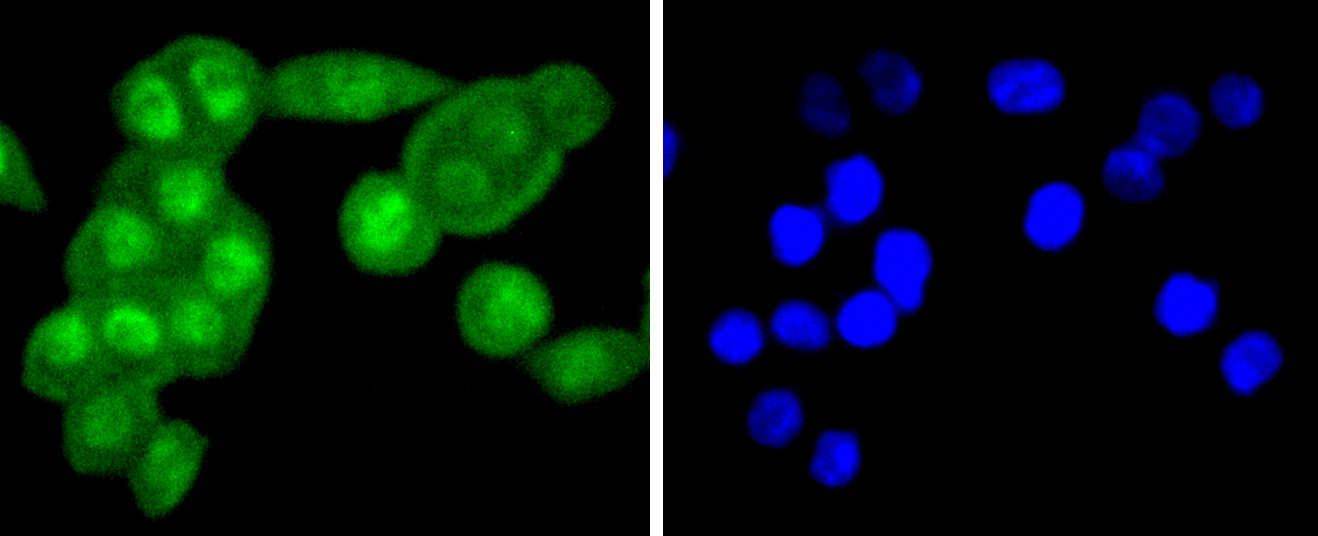
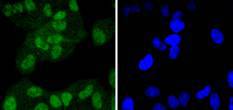
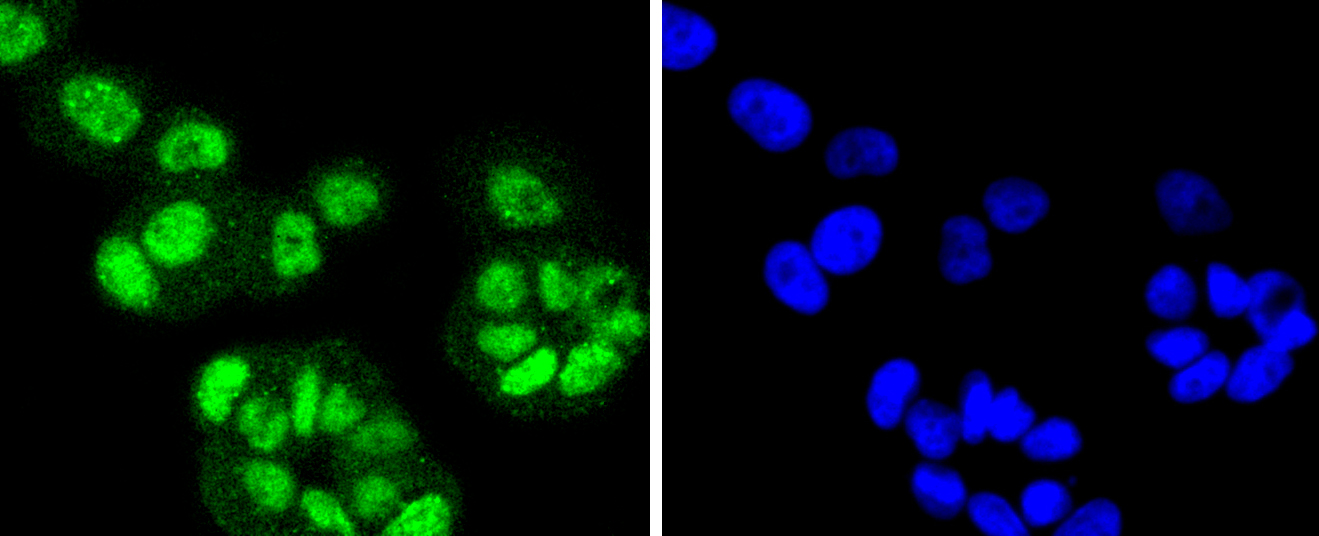
 Yes
Yes



